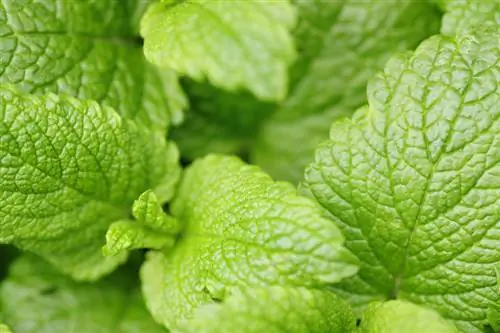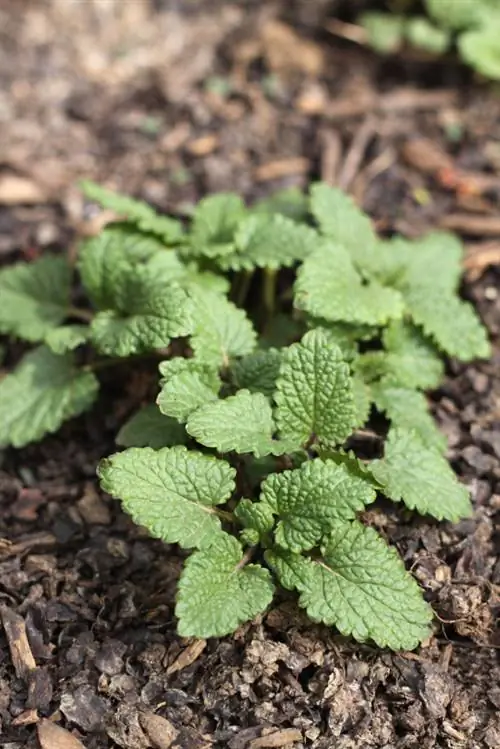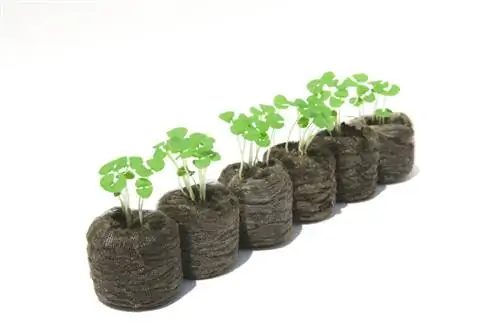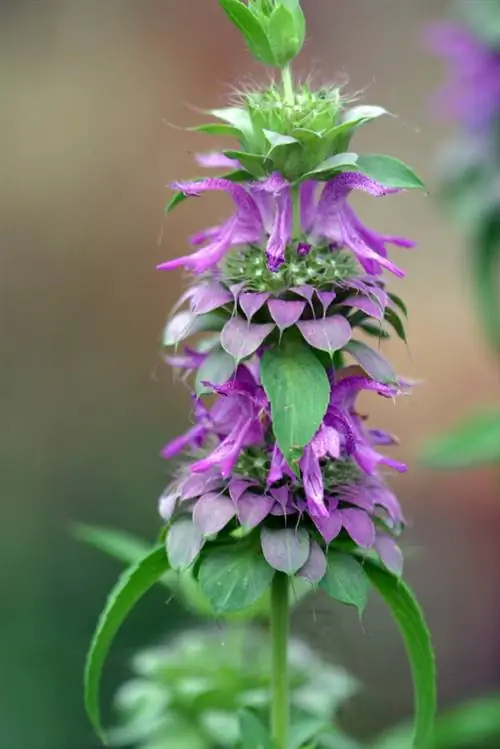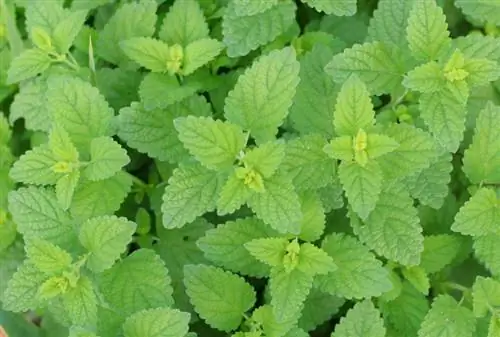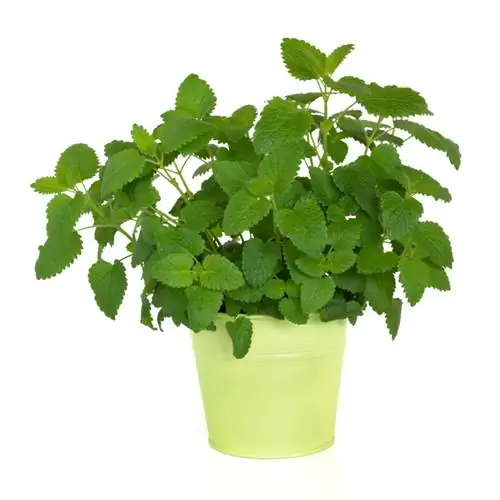- Author admin leonars@hobbygardeners.com.
- Public 2023-12-16 16:46.
- Last modified 2025-01-23 11:20.
In and of itself, lemon balm grows in any location as long as there is no Egyptian darkness or waterlogging. If you want to extract maximum aroma from the herb plant, plant lemon balm in the following locations in the bed and on the balcony.
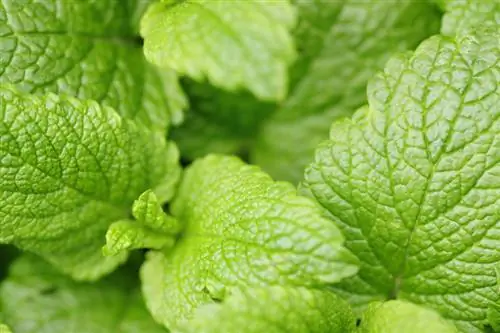
Which location is suitable for lemon balm?
The ideal location for lemon balm is a sunny to partially shaded location with at least three hours of sunshine daily. The plant grows best in nutrient-rich, humus-rich, well-drained and fresh soil. Herbal soil is suitable as a substrate in the bucket.
Three hours of sunshine a day is a must
Native to the pleasant climate of the Mediterranean, lemon balm has a sunny disposition. Light therefore plays an essential role in successful care. Where the following conditions prevail in the garden, lemon balm does its best:
- sunny to semi-shady location
- ideally protected from pelting rain
- nutrient-rich, humus-rich soil
- well drained and fresh
In the large bucket, you can use commercially available herbal soil as a substrate. If you want to mix it yourself, use loamy garden soil with a proportion of compost, leaf mold, sand and perlite. The addition of Styrofoam beads contributes to the loose consistency.
Into the open air only after the Ice Saints
No matter how carefully the location is chosen; If you plant lemon balm in the bed too early, this impatience will have fatal consequences. Regardless of their hardy constitution, the tender young plants cannot stand up to late ground frosts. If necessary, cover the lemon balm with thick garden fleece at night.
From April onwards, the herb plants in the pot are allowed out into the fresh air at least during the day in order to spend the nights in the protected ambience of the room or greenhouse.
Tips & Tricks
As lemon balm has gained a good reputation as a houseplant, it is becoming increasingly common on window sills. A spot on the south side of the house meets the needs of the Mediterranean plant perfectly. Watered regularly, the pretty plant produces an aromatic harvest of rich leaves throughout the winter.

